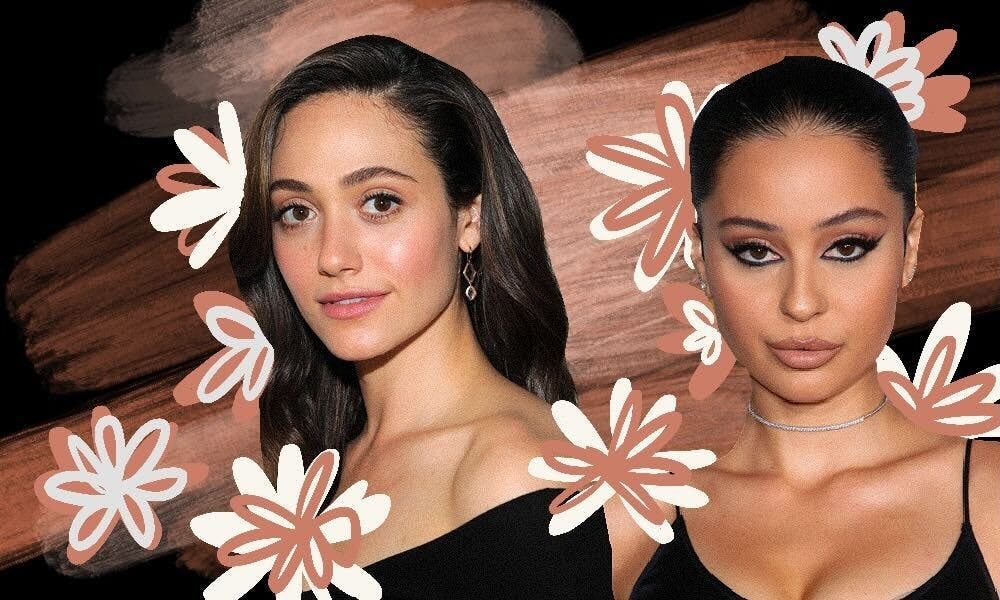For months, the internet was obsessed with Alexa Demie’s age. Known for playing fashion–forward high schooler Maddy Perez on HBO’s Euphoria, Demie became the subject of various memes suggesting that she was much older than many thought. When a viral TikTok of a high school yearbook finally placed Demie at around 31 years old last month, comments poured that expressed shock at how good she looked “for her age.”
Though much of the speculation around Demie’s age had humorous intent, it points toward a larger issue—the correlation between age and desirability, especially for women. Demie is known as an it–girl and fashion trendsetter who is undeniably beautiful, but she is past the typical age of most other women idolized by younger people. Due to Hollywood's known ageism, it’s seems very possible that Demie felt the need to keep her age a secret in order to be considered for covetable roles.
It is unlikely that a male celebrity would be called old at 31, but women are largely treated as if their 30s mark an invisible expiration date on their beauty. Celebrity women who are seen as “older,” such as Beyoncé or Jennifer Lopez, are talked about as if they have defied the expectations for women of their age by still being seen as desirable.
Meanwhile, many prominent male celebrities would be considered old if kept to the same standards as women, and yet they appear as leading men alongside women substantially younger than them. Think of the recent Hulu hit horror movie Fresh, featuring a 39–year–old Sebastian Stan and a 23–year–old Daisy Edgar–Jones. But this trend isn’t new—Hollywood 1952 classic Singin’ in the Rain starred a 19–year–old Debbie Reynolds alongside Gene Kelly, who was 40.
In fact, even the real–life relationship habits of older celebrity men put younger women on a pedestal.
Most recently, the conversation about gendered ageism in the media came to the forefront when 33–year–old actress Emmy Rossum was cast to play the mother of Tom Holland, who is only ten years younger than her, in the upcoming AppleTV+ show The Crowded Room. There are exceptions, of course, but it’s clear that aging for women comes with much different implications than aging for men. While men’s wrinkles and graying hair turns them into "silver foxes," women’s aging means that they can only play mothers or people going through a mid–life crisis—not leading, multidimensional, romantically desirable characters.
The expectation of youth for women as seen in the media translates to how women see themselves daily. CNN recently reported that in 2012, only 20% of women ages 18 to 24 saw anti–aging skincare as important, but in 2018, 50% of women from the same age group said they wanted to incorporate anti–aging products into their routines. Anti–aging tips are increasingly popular among women on social media skin care communities, while cosmetic procedures such as Botox are becoming more common among 20– to 30–year–old women.
The emergence and popularity of photo editing and filters further encourages women on social media to erase any indication of aging. In today’s media environment, youth is equated with beauty. Glowing, flawless skin and a body free of wrinkles and stretch marks are all part of the ideal. With these ideals in mind, women are taught to fear aging because it could lead to the deterioration of our looks, and by extension, our social value. Though our view of older women is heavily influenced by social media and pop culture, gendered ageism is a very real concern for everyday professional women.
In college, many of us are currently in the midst of the transition from teenagers into young adults, and with that comes the fear that we are running out of time. The clock is ticking on our youth, and the desire to be young women forever limits us from enjoying the benefits of growing older. Women in the entertainment industry have spoken up about their fear of aging, such as Taylor Swift in her song “Nothing New,” where a then–23–year–old Swift pondered, “Lord, what will become of me / Once I've lost my novelty?"
Initiatives from older women in Hollywood have brought further light to the issue of gendered ageism and have promoted the idea that older women are beautiful. Stars such as Meryl Streep and Nicole Kidman have been increasingly involved with The Writers Lab, a women–led organization aiming to support female writers who are over 40. Bringing older female creators to the forefront are central to efforts in widening the popular perception of beauty to include older women. Furthermore, actively speaking out against the social media push to encourage young women to invest in anti–aging creams or consider Botox can further reduce the stigmas associated with aging.
Through this, the correlation between a woman’s age and her beauty is deeply rooted in misogyny. Socializing women to believe that their value lies solely in the beauty that comes with their youth is how society shames women into adhering with impossibly rigid beauty expectations.







